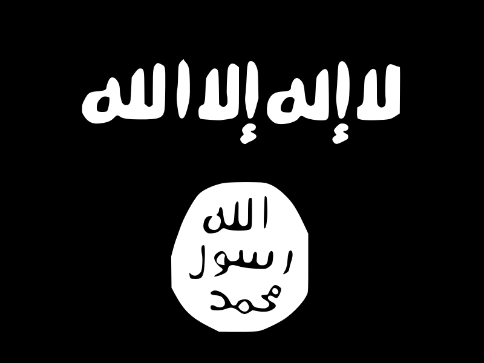 Islamic State / ISIS Flag
Islamic State / ISIS Flag
Event Review – Iraq in Crisis: Recent Developments and Risk Management Strategy
Podcast: Play in new window | Download
Subscribe: Apple Podcasts | RSS
 On Wednesday July 16th, the American Security Project (ASP) hosted Daniel Wagner, MGen Robert Scales, Missy Ryan, and Smita Malik, with moderator Dante Disparte in a talk titled, “Iraq in Crisis: Recent Developments and Risk Management Strategy.”
On Wednesday July 16th, the American Security Project (ASP) hosted Daniel Wagner, MGen Robert Scales, Missy Ryan, and Smita Malik, with moderator Dante Disparte in a talk titled, “Iraq in Crisis: Recent Developments and Risk Management Strategy.”
The speakers considered the threat that the Islamic State poses to businesses and their investments in Iraq, and how these businesses can manage the risks associated with operating in such a volatile, precarious area.
Dante Disparte began the talk by connecting the Islamic State’s rapid, unexpected rise in Iraq to similar events with Boko Haram in Nigeria, Islamist groups in Mali, and attacks on the Karachi airport.
The situation in Iraq is not isolated and businesses must see it as part of a larger pattern that may continue to unfold in unstable parts of the world for decades to come. Businesses must account for the involved risks associated with operating in parts of the world that lie along religious, political, and cultural fault-lines.
Missy Ryan
Missy Ryan began her segment by analyzing the recent events surrounding the Islamic State’s expansion into many Sunni-majority areas of Iraq, with the United States and the Iraqi military caught off-guard. In the wake of IS’s advance, Shia militias have mobilized themselves while Kurdish peshmerga forces have both defended their autonomous region and gained valuable, disputed lands such as the city of Kirkuk and its surrounding oil-fields. Importantly, the Islamic State has made alliances with former members of Saddam’s Arab Nationalist Ba’ath Party rather than being composed solely of native and foreign jihadist fighters.
Recently, on July 15th, the Sunni-parliament elected a new leader and elections for the Kurds and Shia will take place in the coming weeks. However, Iraqi prime-minister Nouri al-Maliki is very reluctant to step down and allow the election of a new prime-minister, even though doing so would help to repair relationships among the country’s many sectarian and ethnic groups.
MGen Robert Scales
MGen Robert Scales began his segment by recounting conversations that he has had with contacts who have recently visited Iraq. According to these contacts, the exportation of Iraqi oil continues largely unimpeded and IS is primarily concerned with consolidating control rather than expanding into new areas of the country. Unfortunately, it is unlikely that the Iraqi army, or any other force in the region, possesses the resources and initiative to move against IS and regain the areas it controls.
The Iraqi military’s capacity to fight is impeded by corruption and shortage of supplies and soldiers. Sunni and Shia radicalism is beginning to take root among some of the soldiers, rooted in a general distrust of the national government. The Islamic State has acquired data detailing relationships between Iraqi military and civilians and the United States military, and has used this data to execute and terrorize individuals who formerly worked with the United State.
Paradoxically, in modern Iraq, there are Shia militias who are willing to fight the Islamic State but who have very little combat skill contrasted with soldiers in the national army who have more skill but have no will to fight. In the wake of IS’s advance, Americans who are currently living in Iraq do not know who to trust.
Daniel Wagner
Daniel Wagner began his segment by emphasizing the twisted, changing, and contradictory tangle of alliances in Iraq.
Wagner argued against proposed efforts to keep the Sunni and Shia populations of Iraq contained within a single state without consideration for the considerable costs that will be incurred. Speaking about Iraq’s future development, Wagner stressed that in Iraq, like other countries in the region with a similar history and circumstances, the hallmarks of a liberal, open democracy may take decades to develop. In regard to companies operating in the region, Wagner discussed the importance of conducting adequate due-diligence in managing the risks involved with operating in and around a country like Iraq.
Smita Malik
Smita Malik began her segment by emphasizing that preparing adequately for risks helps businesses provide for the safety of their employees. Malik cited Erbil, Iraq as an example of a city in which many businesses operate that is exposed to higher levels of risks due to its constrained infrastructure resources and location near ongoing conflicts.
Particularly when businesses have to evacuate their employees from volatile zones, selecting the correct type of insurance is vital in order to guarantee the value and safety of existing assets. Malik emphasized that long-term planning is optimal because insurance prices spike in the wake of destabilizing events and cost the purchasing company much more than if it had purchased the insurance in advance.





